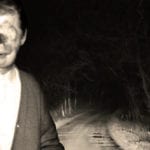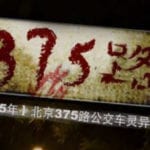 Music
Music  Music
Music  Space
Space 10 Asteroids That Sneaked Closer Than Our Satellites
 Sport
Sport The 10 Least Credible Superstars in Professional Sports
 Animals
Animals 10 Strange Times When Species Evolved Backward
 Facts
Facts Ten Unexpectedly Fascinating Facts About Rain
 Crime
Crime 10 Dark Details of Australia’s Gruesome Unsolved Wanda Murders
 Humans
Humans 10 Unsung Figures Behind Some of History’s Most Famous Journeys
 Animals
Animals 10 Species That Refused to Go Extinct
 Weird Stuff
Weird Stuff 10 Weird Things People Used to Do at New Year’s
 Our World
Our World 10 Archaeological Discoveries of 2025 That Refined History
 Music
Music 10 Chance Encounters That Formed Legendary Bands
 Space
Space 10 Asteroids That Sneaked Closer Than Our Satellites
 Sport
Sport The 10 Least Credible Superstars in Professional Sports
Who's Behind Listverse?

Jamie Frater
Head Editor
Jamie founded Listverse due to an insatiable desire to share fascinating, obscure, and bizarre facts. He has been a guest speaker on numerous national radio and television stations and is a five time published author.
More About Us Animals
Animals 10 Strange Times When Species Evolved Backward
 Facts
Facts Ten Unexpectedly Fascinating Facts About Rain
 Crime
Crime 10 Dark Details of Australia’s Gruesome Unsolved Wanda Murders
 Humans
Humans 10 Unsung Figures Behind Some of History’s Most Famous Journeys
 Animals
Animals 10 Species That Refused to Go Extinct
 Weird Stuff
Weird Stuff 10 Weird Things People Used to Do at New Year’s
 Our World
Our World 10 Archaeological Discoveries of 2025 That Refined History
10 Mysteries And Legends Of The World’s Subway Systems
Standing on a deserted subway platform is an eerie experience. You stand in the cold darkness for your train, hearing distant creaks and whistles, wondering if every sound is your train pulling in or the tormented screams of the damned. This setting is just the place for creepy mysteries and legends.
10New York Subway’s Mysterious DNA
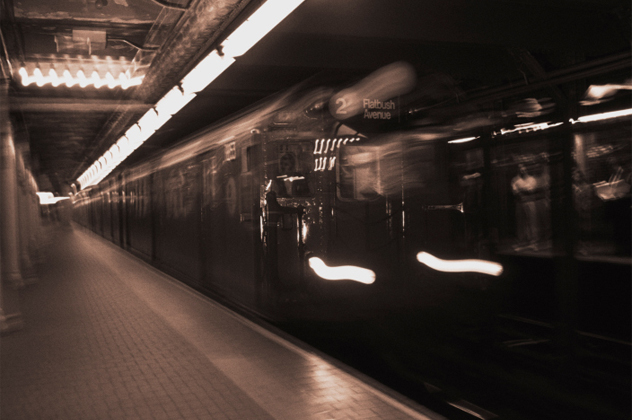
In 2014, a team of scientists from Weill Cornell Medical College sequenced genetic material found in the turnstiles, seats, and ticket booths of all 468 New York City subway stations. They discovered bacteria known to thrive on human skin, as well as those associated with gastrointestinal and urogenital systems and human feces. They discovered remnants of neighborhood-specific cuisine like pizza and falafels, though considering the fecal bacteria situation, eating on the subway might be ill-advised. One station that had been flooded during Hurricane Sandy still contained DNA associated with a marine environment. They even found traces of anthrax and the bubonic plague, although they were also quick to downplay any risks to the public. All in all, the team found DNA from 15,152 distinct species.
The weird part? Over half of the DNA sequences matched no known organism. The likely explanation is that the subways simply contain mundane microorganisms that we haven’t got around to matching the genetic sequences for yet. Then again, New York’s health department condemned the paper, saying, “This report is deeply flawed, and the interpretation of the results is misleading. The researchers failed to offer alternative, much more plausible explanations for their findings, which is a common best practice for scientific papers.” That sounds like they might be hiding aliens.
9Tokyo’s Secret Underground Network
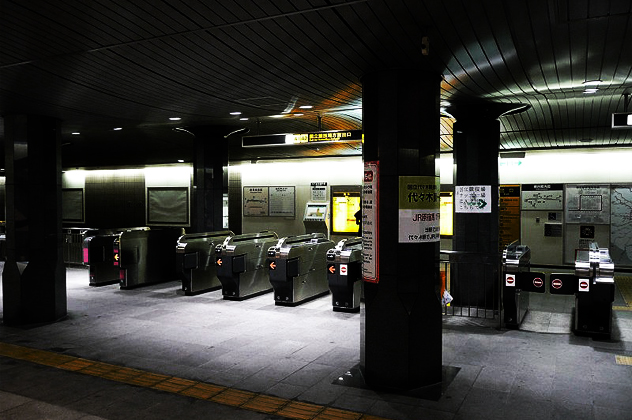
In 2002, journalist Shun Akiba published Teito Tokyo Kakusareta Chikamono Himitsu (translated as Imperial City Tokyo: Secret of a Hidden Underground Network), in which he claimed to have uncovered evidence of a secret network of tunnels by comparing historical and modern subway maps. “Close to the Diet in Nagata-cho, current maps show two subways crossing. In the old map, they are parallel.” Convinced that such engineering was impossible, he began to dig into construction records.
This turned out to be only the first of seven riddles which he believes are inconsistent with official records. The others were old maps showing a secret underground complex between Kokkai-gijidomae and the prime minister’s residence, maps of the National Diet surrounded by a huge empty space and paddy fields, multiple inconsistencies in newer maps, strange points of interest around postwar Tokyo’s General Headquarters, and the possibility that the “new” Oedo line had already existed and the money allocated for tunneling had just disappeared.
Shun believes that a secret underground network was first built before World War II but is concerned as to why it remains a secret even today, suggesting that it may be part of government preparations for a nuclear attack. Some believe that government officials have access to secret trains and underground complexes beneath government buildings.
8Mole People And Troglodytes
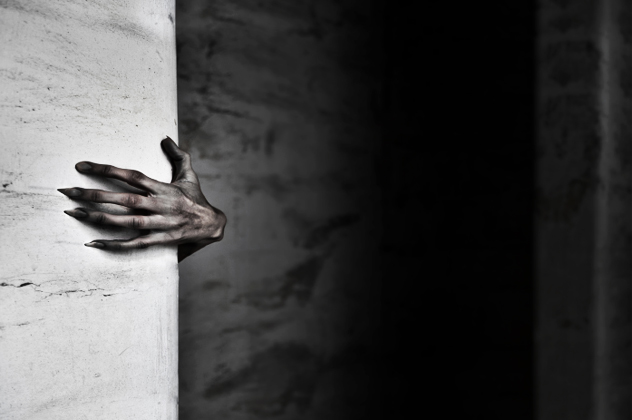
For years, there have been tales of homeless people disappearing into the tunnels of the New York subway system and never emerging again. These alleged mole people were said to be mutants who hated the sunlight and surface dwellers, preferring to live in underground cities built in abandoned train tunnels, where they steal electricity, tap into water pipes, and build their own houses and dwellings. More outlandish versions of the legend painted them as bug-eyed monsters who would kill and eat surface dwellers who strayed into their territory.
When journalist Jennifer Toth went into New York’s tunnels in 1993, she didn’t find any mutants. Instead, she found a community of thousands of marginalized people—runaways, the mentally ill, drug addicts, alcoholics, and recluses—living in terrible conditions. This forced the city to respond to a long-ignored problem and attempt to get these people out of the tunnels. These attempts were a mixed success. Video footage from 2010 proved that there were still homeless people living in the tunnels, and later concerns were raised over the fate of those trapped by flooding during Hurricane Sandy.
Meanwhile, in London there have long been rumors of devolved humans known as troglodytes living in the Underground, said to be descended from Irish laborers trapped during construction in the 1890s. They are said to survive by eating discarded food, rats, and the occasional unlucky tramp.
7Singapore Mass Rapid Transit’s Bad Feng Shui
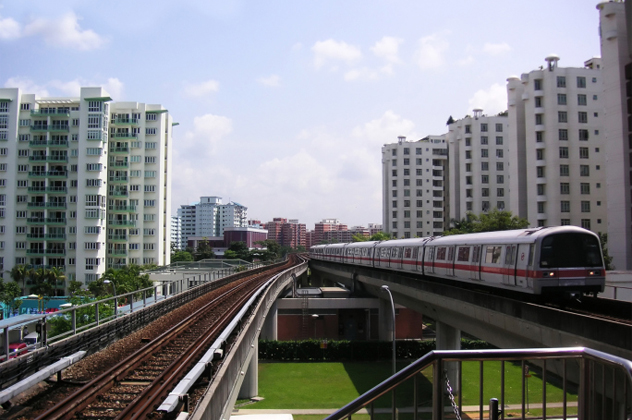
In the 1970s, Prime Minister Lee Kwan Yew pushed for the construction of a subway system called Singapore Mass Rapid Transit (SMRT) as part of the city-state’s modernization drive. The project began well, but soon the economy began to tank. According to urban legend, Prime Minister Lee visited a feng shui master named Reverend Hong Chuan. Lee was advised that the SMRT network was disrupting the eight dragon veins beneath the city, unleashing angry dragon spirits and/or disrupting the flow of qi, thereby causing the economic downturn.
The solution was to make all Singaporeans, regardless of their ethnic origin or beliefs, carry a bagua, an octagonal mirror said to deflect negative energy in Chinese geomancy. The alleged solution of how to get the city’s diverse population of Chinese, Malays, Indians, and Europeans—of many different faiths—to carry a Chinese geomantic bagua was ingenious. The 1987 Singapore $1 coin was designed with an octagon on both sides, which some believe quelled the dragon spirits and allowed Singapore to embark on a new period of economic growth. The coin was released in September 1987, two months before the grand opening of the first SMRT line at Toa Payoh.
6Moscow Metro-2
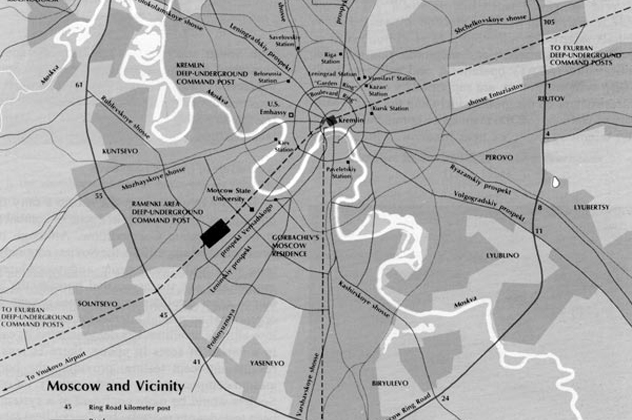
People have been hiding things beneath Moscow for centuries: Byzantine libraries, Ivan the Terrible’s secret torture chamber, and Catherine the Great’s underground canal network. So it’s unsurprising that Stalin got in on the action. Metro-2 is the name given to a purported secret underground rail network built by Stalin in the 1930s to allow the Soviet secret police to move around the city rapidly without detection. It originally linked Stalin’s dacha (suburban residence), the Ministry of Defense, command bunkers, and other military facilities. Larger and more extensive than the official metro system, it is unknown whether construction stopped after Stalin’s death or if his successors continued to expand it.
The system was also meant to serve as protection against nuclear attack, with a supposed giant bunker built beneath the Moscow suburb of Ramenki that was able to house up to 300,000 people along with an alternate command post for the Soviet high command. There are even rumors that the network extends for miles outside Moscow, allowing Soviet leaders to flee in case the capital was hit by a nuclear attack. There are also rumors that the tunnels were used by the military to transport supplies, materials, and personnel between bunkers without exposure.
A tunnel leading into the Metro-2 system was discovered after the 1960s-era Rossiya Hotel near the Kremlin was demolished. The tunnel was referred to as “D6,” which is apparently KGB code for Metro-2, and urban explorers attempted to exit to the main metro line through a sealed door.
5Marble Of Mohrenstrasse
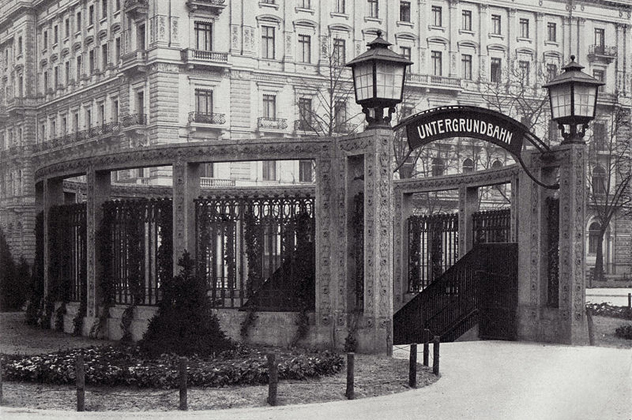
The Mohrenstrasse U-bahn station in Berlin is known for its striking red marble, which is rumored to have a bizarre origin story. Some believe that the marble was taken from the center of Hitler’s political power—the New Reich Chancellery, or Neue Reichskanzlei. Designed by renowned architect Albert Speer, the Chancellery was a bombastic and ostentatious building incorporating red marble prominently in rooms such as the Mosaic Hall and Marble Gallery. This was the building where the decisions leading to World War II and the Holocaust were made, and beneath the chancellery’s gardens was the bunker complex in which Hitler would finally commit suicide.
During the war, the building sustained heavy damage and was eventually dismantled by occupying Soviet forces. It is claimed that when the East Germans rebuilt nearby Mohrenstrasse station in 1950, they simply cannibalized the material left behind by the crushed Nazi palace. Some point to newspaper reports of a shipment of red marble from Thuringen at the time, but others say it was just a coverup of the true source.
Berlin is also home to another U-bahn mystery: Leinestrasse station is said to be home to a mysterious creature known as the Tunnelpfeifer, which resembles a mole and whistles in the tunnels. In 2012, there was a billboard and website dedicated to the creature, which seems to be the result of a conceptual art project.
4G Train Portal
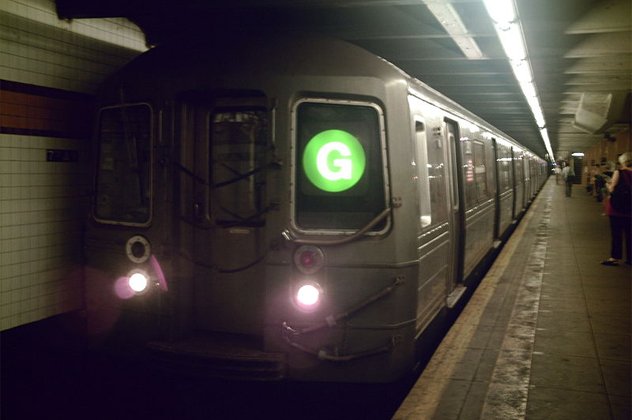
In February 2015, Twitter user Nellie Killan posted “So, has anyone ever seen the G train conductor stop the train between Bedford-Nostrand and Myrtle-Willoughby, unlock an ad to reveal a handle that opens the door to the tunnel, and then let two women out?” Her story was backed up by other commuters, who said that the two women looked like everyday, middle-aged women. After the conductor pulled the lever that opened the strange panel, it opened onto a darkened platform (one man reported seeing a room with frosted and barred windows.)
Gothamist attempted to get to the bottom of the story. Joe Raskin, author of The Routes Not Taken: A Trip Through New York City’s Unbuilt Subway System, said that while he knew of extra tunnels east of Bedford-Nostrand, he was unaware of any structures matching the description in the story. Meanwhile, an urban explorer confirmed the story about the barred and frosted windows. A New York City Transit employee made the issue more complicated by relating a story about a man in a tweed suit with a briefcase who entered the train, opened the opposite side with a key, and disappeared onto an unused section of platform, all before the train departed.
The most plausible suggested explanation for the incident and weird structure is that it’s a signal tower operating the switches over a given area of track, usually unmanned unless construction is underway. The two women were probably employees being given a ride to avoid having to walk the tracks and climb a filthy ladder. That theory has pretty much been proven now, but any normal passenger could be forgiven for freaking out when someone just up and disappears through a secret underground doorway.
3Mexico City Metro’s Aztec Skulls
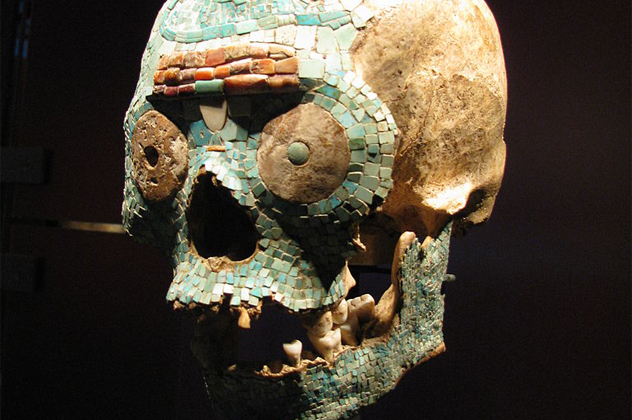
Between 2008 and 2012, workers on a subway extension track of El Metro in Mexico City uncovered a number of human skulls dating from the Aztec imperial period. They appear to have been part of a tzompantli, or “skull banner,” a rack where the skulls of sacrificial victims were proudly displayed. The grisly find included two male skulls, one female skull, and, weirdly enough, a dog skull. All of the skulls had characteristic perforations allowing them to be mounted on the rack, which is odd considering that most sacrificial victims were men, and sacrificial skulls of animals were rare. The few exceptions would be horse skulls racked alongside their riders during the Spanish conquest period.
Earlier the same year, a subway expansion at Liverpool Street station in London uncovered a number of Roman skulls believed to have belonged to individuals killed during the Celtic rebellion under Boudicca in the first century AD. El Metro, meanwhile, has a few more creepy mysteries, including the mysterious sounds of screams and knocking on the walls in the Panteones-Tacuba Tunnels, a phantom train, and the ghost of a dutiful subway inspector who still shows up to work at 3:00 AM every day.
2Toronto’s Mysterious Liquid
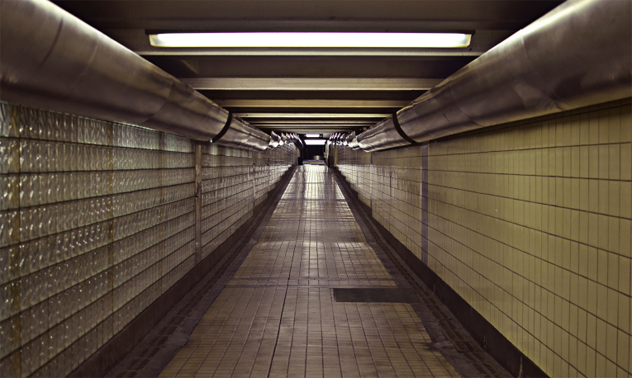
In March 2015, there was chaos in Line 1 of the Toronto Transit Commission’s subway system after a mysterious, potentially flammable liquid smelling of gasoline leaked into the tunnel near College Station. The unidentified liquid was pouring onto the tracks, forcing the TTC to suspend services, shepherd disgruntled commuters onto shuttle buses, and clean up the spill with a dusting of “absorbent granules.”
The Commission initially declared that experts believed it was definitely not water, but they later announced that tests had indicated that the liquid was water with very low concentrations of a kerosene-type substance. The water had apparently filtered through soil picking up contaminants along the way, and eventually reached the subway tunnel. Twitter theorists were evenly divided over the true origins of the liquid: Some blamed the ectoplasm from Ghostbusters 2, and others identified it as the mutagenic ooze from the Teenage Mutant Ninja Turtles. Of course, it could also be linked to stories of Toronto being built over an ancient alien city inhabited by grey-furred Morlocks.
1Tales Of Subway Corpses
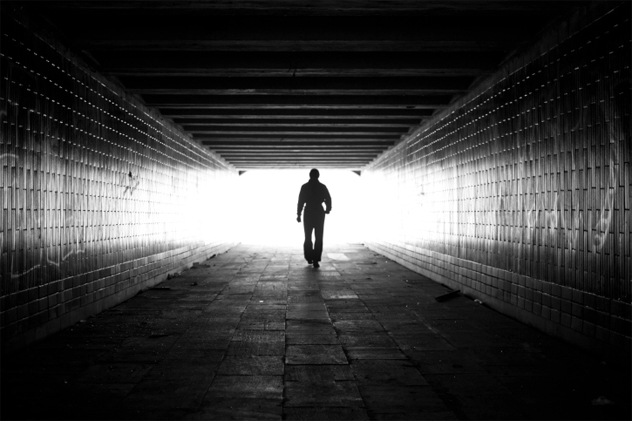
In 2007, a story appeared on the Unexplained Mysteries forum telling of an art student on the London underground. She was alone except for a man in his thirties until two young men with a woman between them boarded the train. They looked sketchy, so the student avoided eye contact, but the man in his thirties sat down next to her, engaged her in conversation like he knew her, then whispered to her to get off at the next station. She did, apparently more apprehensive of the other three, and after the train departed, he explained that he had seen them drag the woman onto the train with a pair of scissors sticking out of the back of her skull.
Another forum member in Sydney reported hearing an identical story, except with three women and strangulation rather than scissors. There was also an email circulating in the early 2000s which played out much like the London story but involved a doctor on the train realizing that the woman sitting between the men was actually a corpse. The urban legend appears to be a global phenomenon, according to research by the Londonist. Most are modern versions of the tale, but one of the oldest is from New York and tells of a couple riding a late-night stagecoach who are forced to share it with three ruffians, one of whom appears drunk. The other two get off one by one, telling the apparent drunk, “Good night, Dick,” and leaving the couple to worry about him missing his stop. They attempt to rouse him, only to discover that his throat has been cut from ear to ear.
David Tormsen’s personal subway mystery was falling asleep on the circle line in Seoul and waking up eight hours later at his original destination. Email him at [email protected]


